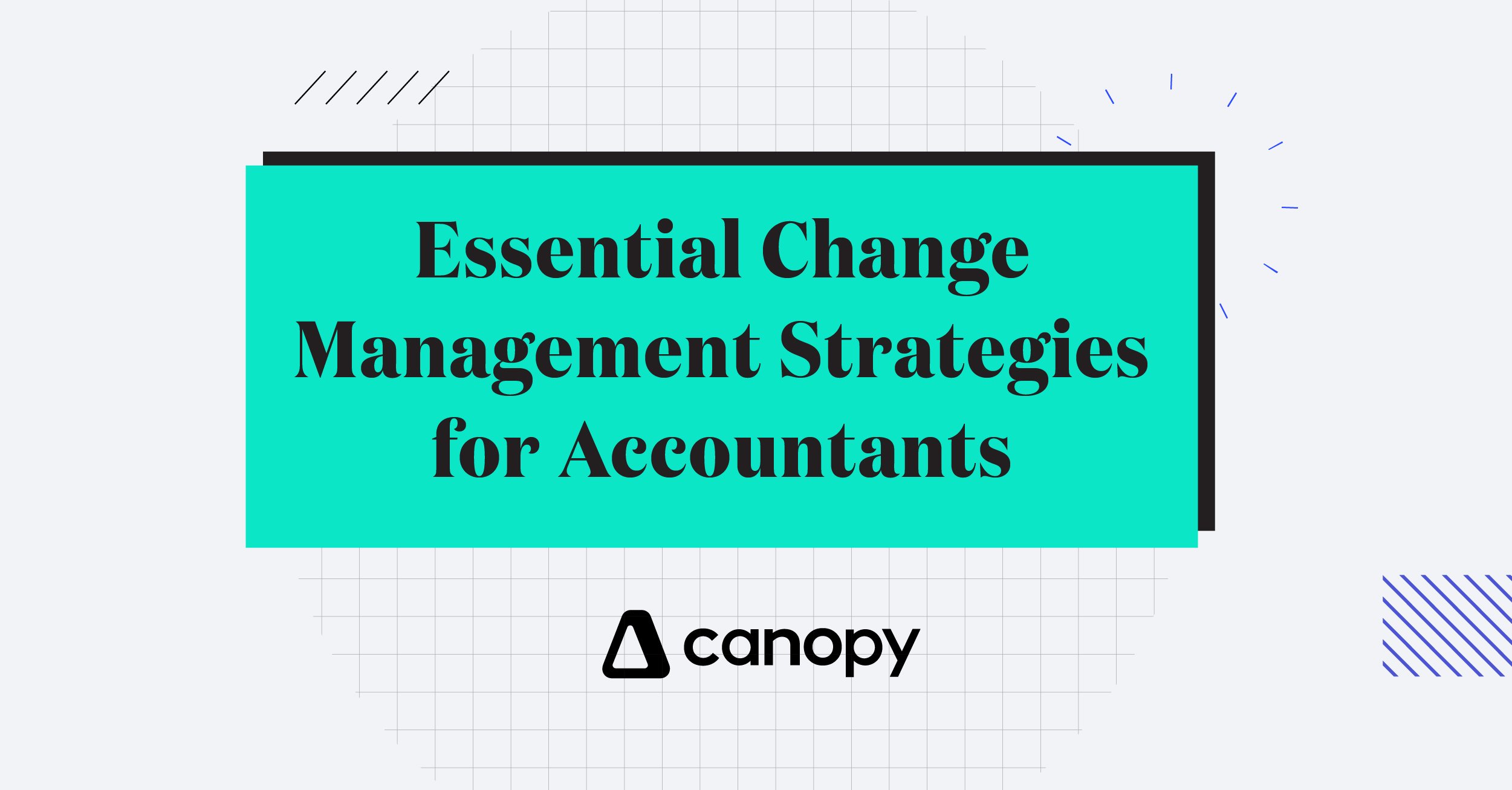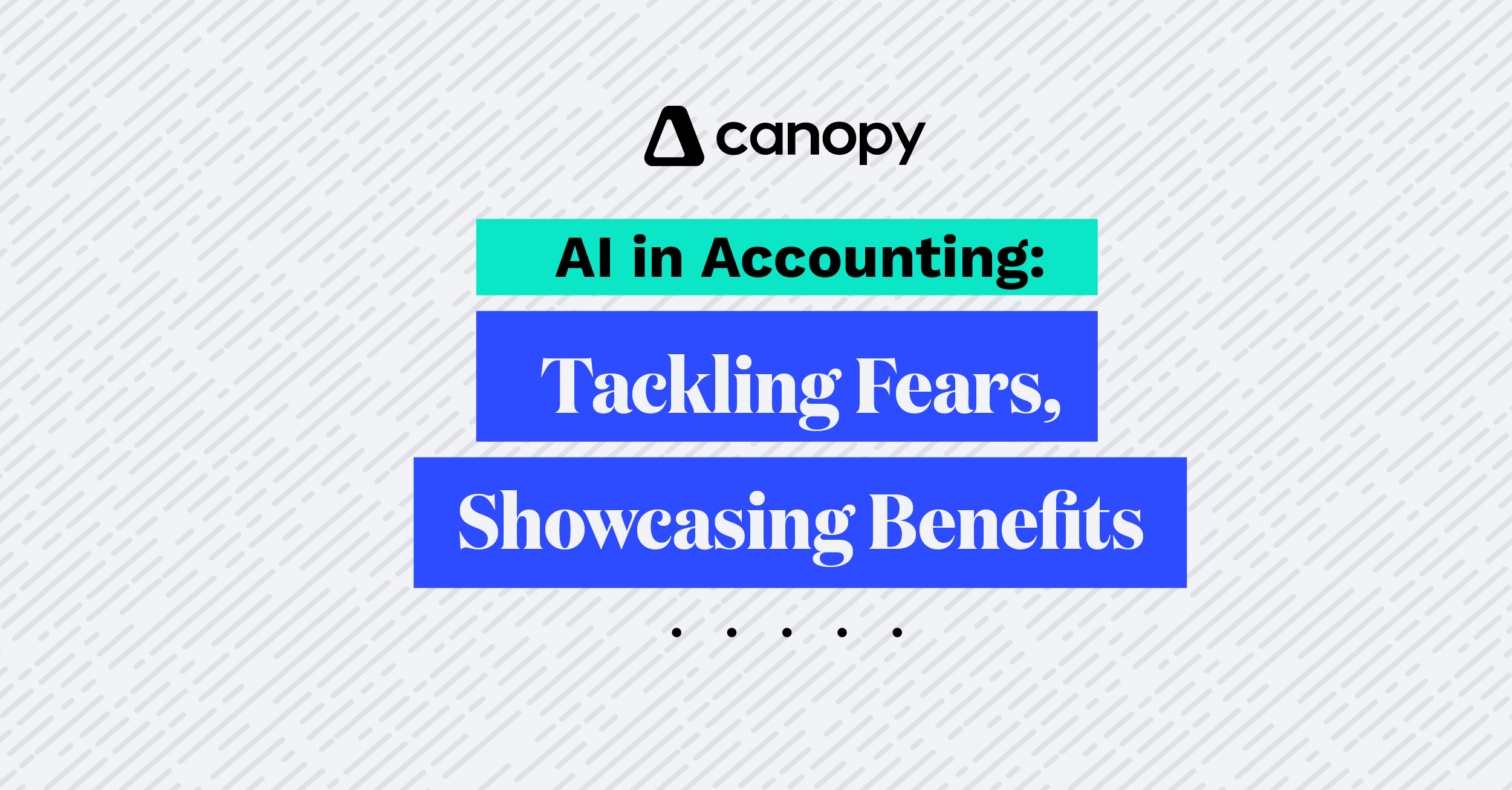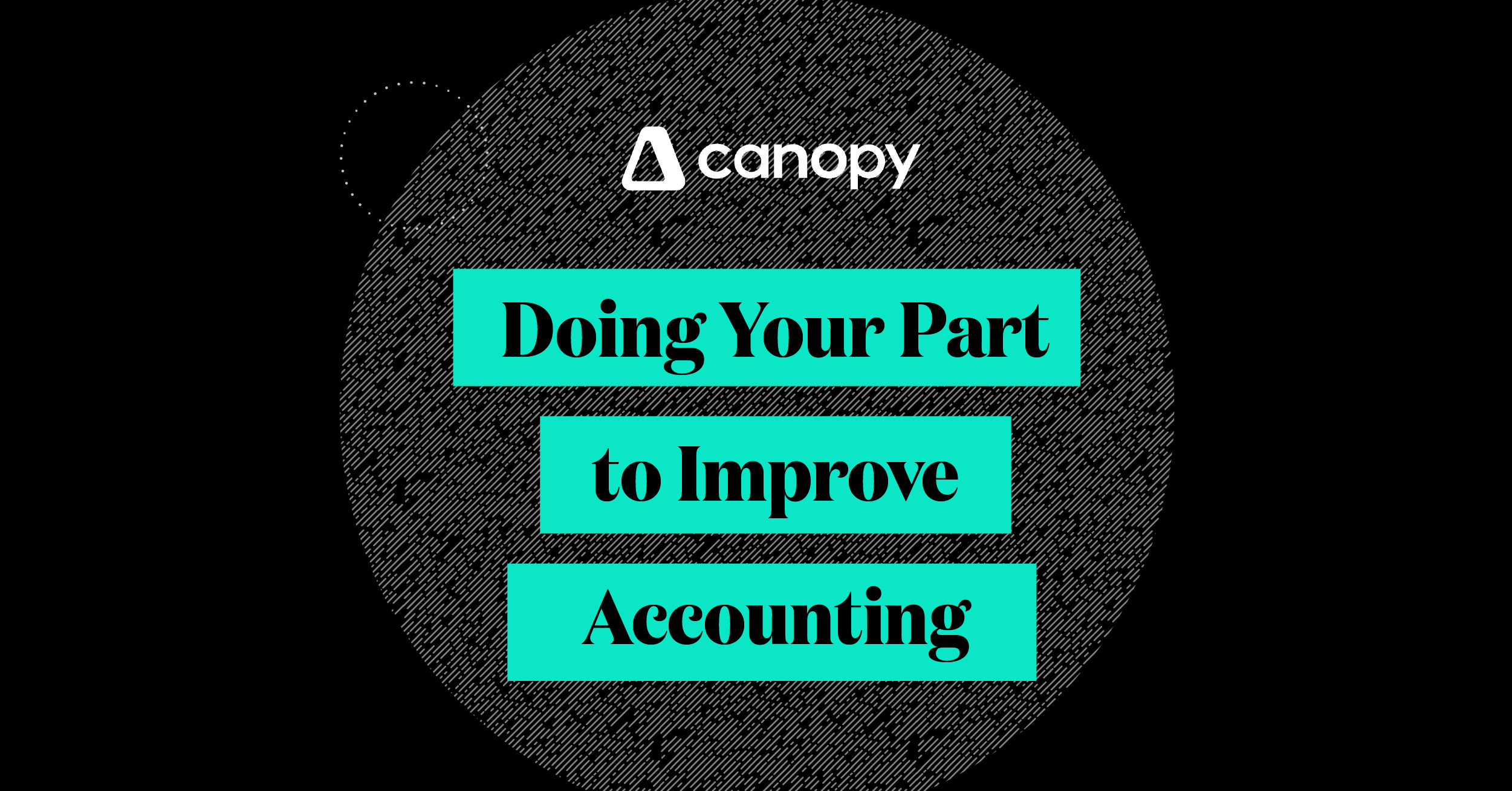The off-season is when you can examine how your tax season went and reflect on changes you can make for the next season. Sometimes, those changes are significant — new tech stack, hiring new employees, or increasing/decreasing your client list. Sometimes, those changes are minor and (hopefully) take less effort. If you've been keeping a pulse on the evolution of the accounting industry, you've realized that change is not just a necessity; it's imperative. Eighty-three percent of accountants agree that new tech is required to keep pace with the market.
As new technologies emerge and regulations shift, accountants like yourself must adapt swiftly to ensure you have the practices and tools that ensure accuracy and compliance and give you a competitive advantage. This blogpost explores why effective change management is crucial for accountants and outlines practical strategies to manage transitions smoothly.
Understanding the Impact of Change
As mentioned above, changes in accounting often come in the form of new financial regulations, tax laws, or technological advances. These shifts significantly impact the core functions of what accounting firms can offer their clients. Keeping up-to-date with the latest developments and anticipating these changes' effects on your practice and clients will set you apart.
Change management in accounting involves adapting and guiding financial operations and policies to accommodate and leverage shifts or advancements within a business environment. Some examples include:
- Transition to Cloud-based Accounting Systems: Accounting firms are moving from traditional, on-premise software to cloud-based accounting platforms to enhance accessibility, scalability, and real-time data analysis.
- Adoption of New Financial Reporting Standards: Adapting internal processes to comply with updated financial reporting standards, such as the transition from GAAP to IFRS, requires meticulous planning and training to ensure accuracy and compliance.
- Implementing New Practice Management Software: The shift from manual to automated accounting processes entails selecting appropriate technology, training staff on new systems, and continuously monitoring the effectiveness of automated solutions to ensure financial accuracy and efficiency.
- Mergers and Acquisitions (M&A): Integrating the accounting practices and policies of merging companies involves harmonizing financial reporting, systems, and teams, requiring careful change management to minimize disruption and optimize financial integration.
Strategies for Effective Change Management
Change doesn't always have to equal a total disruption of your workflow — nor does it have to stress out you or your employees. Effective change management in accounting involves several key strategies:
- Identify a change champion — someone within your organization to spearhead the changes you’re planning to make. They rally support and foster enthusiasm among team members. Ideally this is a trusted member of your firm who is in good standing.
- Ongoing education and training are essential. Accountants must be proactive in their learning to stay ahead of industry trends.
- Adopting new software and tools can streamline processes and increase efficiency. Tools like cloud-based platforms enhance collaboration and data accessibility.
- Strong leadership and clear communication are crucial.
- Find a support system — peers who've already navigated the changes that can offer support or answer questions as you’re in the process.
Leaders should facilitate change by setting clear goals, involving team members, and providing support throughout the transition.
The Technological Advantage of Change
Technological advancements play a pivotal role in change management for accountants. Innovations such as artificial intelligence, machine learning, and blockchain reshape traditional accounting tasks. When thinking about the advantages of updating your tech stack, you should consider the following benefits:
- Increased Efficiency: Incorporating modern technology into accounting practices significantly reduces the time spent on manual tasks like data entry, calculation, and report generation, allowing accountants to focus on more strategic activities.
- Real-Time Data Access: Modern systems provide instant access to financial data, enabling timely decision-making and the ability to respond quickly to market changes.
- Enhanced Accuracy: Automated systems minimize human error, improving the accuracy of financial records and reports, which is crucial for compliance and strategic planning.
- Improved Client Services: Technology enables accountants to offer more personalized and efficient services to clients, including real-time updates, online consultations, and digital document exchange, enhancing client satisfaction and retention.
- Cost Reduction: Over time, adopting technology can lead to significant cost savings by streamlining processes, reducing the need for physical storage, and lowering the risk of costly errors.
- Scalability: Modern accounting technologies are designed to grow with a business, easily accommodating an increase in transaction volume or the expansion into new markets without the need to overhaul the existing system.
- Data Security and Compliance: Advanced security features and compliance tools ensure that sensitive financial data is protected against breaches and that accounting practices adhere to the latest regulatory standards.
- Attract the Right Talent: By adopting advanced technology, modern accounting firms streamline operations and attract digital-savvy employees with enhanced tools and systems, promoting skill development and career growth while signaling a commitment to innovation and a leading edge.
Challenges and Solutions in Change Management
- Challenge: Resistance from Employees
Solution: Effective communication and involvement are essential. Engage employees early in the change process, provide comprehensive training, and clearly explain the benefits of the new systems or processes to their daily work and the organization as a whole.
- Challenge: Data Security and Privacy Concerns
Solution: Implement robust cybersecurity measures and data privacy protocols. Train all employees on these protocols, ensuring they understand the importance of data security and compliance with regulations.
- Challenge: Integration of New Technologies with Existing Systems
Solution: Carefully plan the integration phase to ensure compatibility between new and existing systems. Employ internal or external specialists if necessary and consider phased rollouts to monitor and adjust the integration process as needed.
- Challenge: Cost of Implementing Change
Solution: Conduct a thorough cost-benefit analysis before initiating change. Plan for short-term expenses but focus on the long-term benefits and savings. Seek cost-effective solutions and technologies that offer scalability so that the investment will continue to pay off in years to come.
- Challenge: Maintaining Productivity During Transition
Solution: Develop a detailed change management plan that includes transition periods, training sessions, and support resources. Minimize disruptions by implementing changes in stages or outside of peak business periods.
Change management is the necessary vehicle for your practice to continue operating at maximum efficiency. Don’t make the mistake of thinking that your accounting practice has plateaued in its efficiency and scalability. There are always better methods, tools, and strategies that can increase your productivity, decrease the amount of wasted energy and money, and allow your firm to continue to be relevant (and appealing) decades from now.

Chris is a content manager for Canopy, joining the team with a combined eight years of experience as a copywriter, editor-in-chief, and content marketer. He's a skilled wordsmith and strategic thinker who shapes brand identity through compelling content and fosters a collaborative and innovative environment. With a passion for storytelling and a dedication to excellence, he is a driving force behind any company's success in content marketing. Champion of the Oxford comma.
READ MORE BY Chris






Get Our Latest Updates and News by Subscribing.
Join our email list for offers, and industry leading articles and content.